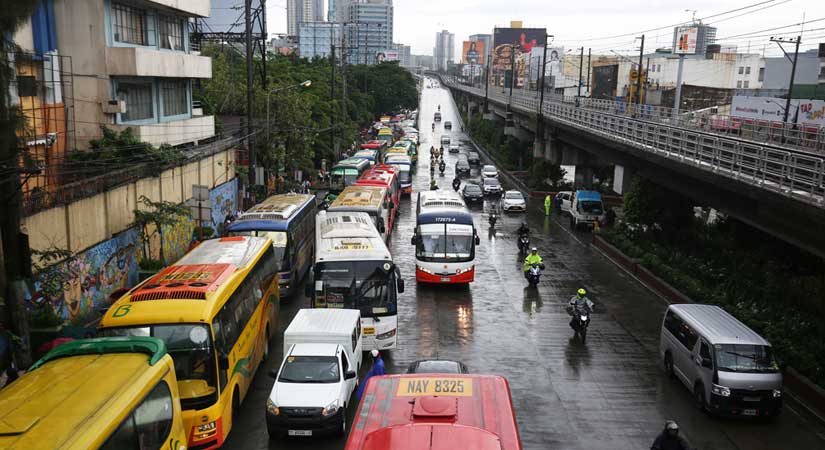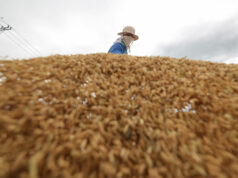If some of our people have little regard for their own safety, can we still expect them to have any regard for the safety of the rest of us? Self-preservation is a natural instinct. And yet, with the way some of us conduct ourselves, this does not seem evident. And with this being the case, then maybe little to nothing can be expected from us with respect to the preservation of others.
At the corner of Dela Rosa and Salcedo streets in Legaspi Village in Makati City, a portion of the sidewalk is currently closed. Large signs clearly state that pedestrians are to use alternatives like the elevated walkway, for safety reasons. And yet, some of us choose to disregard the signs — and the alternatives — and instead walk on the road. By doing so, we risk not only our safety but the safety of others like passing motorists.
It is beyond me why we choose to do precisely what is discouraged primarily for our protection. Laziness seems too trivial a reason. And, it costs us only a bit of time and effort to take a roundabout route. But why is it that we are just too busy to be bothered to take precautions for our own safety and the safety of others? What does this say about us?
Have we become this callous and uncaring in this day and age that we can no longer tell right from wrong, proper from improper, safe from unsafe, considerate from inconsiderate, important from trivial? Why do we readily trade safety for comfort and convenience? Are we being practical by doing so? But, to what end? Does it profit us, in any way? But, at what cost?
A newspaper photograph from 1975 was circulated in social media recently. It showed three buses coming from Liwasang Bonifacio, all going up what appeared to be MacArthur Bridge. The buses, three astride, didn’t want to give way to each other. Thus, they ended up hitting each other on their sides. As a consequence of this, they blocked the bridge and traffic.
This was in 1975, when the country was still under military rule. Obviously, even martial law was no match against the lack of discipline on our roads. But, even under better political conditions, lack of discipline — or lack of courtesy — remained an issue. It is as if we — as a people and as motorists — have not moved forward even after four decades.
In 2015, a similar incident again happened among buses refusing to give way to each other. On EDSA-Kamuning, three buses ended up blocking traffic after they sideswiped each other. And then, just late last year, a similar accident happened yet again. Three buses hit each other, and blocked traffic, inconveniencing hundreds of road travelers.

As I write this in the New Year, I come to the realization that nothing has changed in the last 45 years, as far as driving and pedestrian habits are concerned. They have only gotten worse, not better. Courtesy is now practiced more in breach, and not just in driving but everywhere else. The Filipino of today, it seems, has less regard for his fellow than the Filipino of yesteryears.
Gone is the post-war Filipino who used to be known for his values, and his strong sense of others as evidenced by his readiness to be part of any bayanihan (the spirit of communal unity, work and cooperation) to help his fellow man. In our cities in particular, people now look out more for themselves than each there. And with the spirit of bayanihan obviously dead, I can only wonder if bayan (country) itself will soon follow to the grave.
Just look at how we litter our streets, and you cannot help but think that the Filipino of old, the one who was friendly and helpful and considerate and mindful of others, is now GAGo or Good As Gone. Are we deliberately refusing to move up and forward as a people? Why have we chosen to abuse the political freedom regained in 1986 to bring out the worst in us?
Recently, I was at a shopping mall’s food court for lunch. On the tables were stickers encouraging diners to ClayGo or Clean As You Go. Diners are being reminded to clean up after themselves — to bring used plates and utensils to tray stations after dining. Same thing for water goblets or tumblers. The drinking station has crates for clean and used tumblers.
But despite the clear signs and markings for what I believe to be a reasonable request, most diners still leave their used plates, tumblers, and utensils on tables. Worse, they actually leave a mess after eating. Very few people bother to clean up and stow away. And with only a few hired cleaners doing the rounds, it takes them a long time to bus tables and wipe them clean.
I have raised this topic in my column time and time again primarily because I believe this to be a strong indicator of who and what we are as a people. This “problem” has less to do with the assumption that labor is relatively cheaper here, and more to do with how we regard each other. In Japan, for instance, it is practically second nature to them to clean up after dining.
The Filipino of old, the one with traditional values and who understood the spirit of bayanihan, is Good As Gone. And he is unlikely to come back. His ilk evolved, for sure, but not necessarily for the better. The personality traits of his descendants seem to have been shaped less by heredity and more by environment. And given how things are now, perhaps their disastrous end is inevitable.
Marvin Tort is a former managing editor of BusinessWorld, and a former chairman of the Philippines Press Council.



